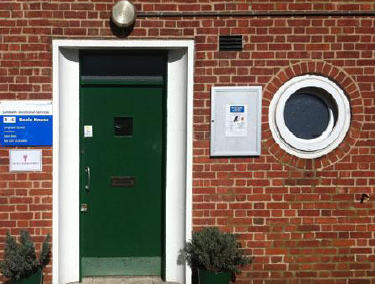An extensive range of learning is emerging from an evaluation of peer and vocational support, which is helping to forge an innovative pilot project.
The plan is to explore the integration of vocational and peer support, so that peer supporters can get vocational guidance to move forward and service users on vocational journeys can link in to peer support.
Mark Bertram says that one of the factors that came through from analysing the one-to-one indepth interviews (with seven people involved in vocational and peer support projects) was the need for agencies to work more closely to ensure that peer supporters have a career pathway.
Mark says that earning money, either on training or peer support projects was important because people felt valued.The cost benefits of peer support emerged too – both for the peers supported and for peer supporters who were less likely to have a crisis or return to hospital. An economic model is needed to formulate the cost savings.
“We wanted to find out what works for people. What are the conditions and types of person centred support that facilitate a learning change and growth process,” says Mark- who currently manages vocational services for SLaM in Lambeth. “Having a successful user run vocational project here, takes peer support to another level.
Critical time
“We’ve got a large, compelling evidence base that tells us, as in the title of our report suggests, that when people’s life experiences and assets are validated, they can go from ‘Just about Surviving to Thriving’.”
This comes at a critical time as welfare reforms, ATOS and the ‘bedroom tax’ further disenfranchise those already made vulnerable by the damaging impact of social inequalities.
As well as being validated as an individual, those in vocational projects highlighted self referral, and equality based trusting relationships as important. They also wanted activities that matched their aspirations and to be guided by insightful people who were efficient but compassionate, acknowledging that change can be slow, difficult and each person has to work at their own pace.
One person said:
“I have something positive in my life – now I have an answer to the question what did you do today- I’m coming alive again.”
The evaluation highlights a number of themes for shaping the future:
- How do we scale up peer support so it has a significant cultural impact on mental health services?
- Peer supporters tell us as a result of their work hospital admissions are being avoided and people are being discharged from community mental health teams (CMHTs). How do we formulate a model that calculates the cost savings of peer support?
- We need to identify what constitutes effective support for peer supporters and ensure it is in place.
- We need a co-produced mechanism that monitors the quality of mental health services from a service user perspective.
- A continuum of peer support can be developed from a hub that has learning and hope at its heart . This could start from survivor/user led self management programmes and extend into a whole range of peer support- both individual and groups.
“What’s really important to bear in mind is that all the life struggles people experience are always understandable and it’s these struggles that seriously damage people’s mental health and well being. We found the extent of personal and social invalidation reflected the extent of distress. The good news is that with the right conditions people can find their own way through, turn their lives around and improve mental health, well being and quality of life. Our approach has always been authentically person-centred, to find out what happened to people and what they want to do – rather than what’s ‘wrong’ with them.”

